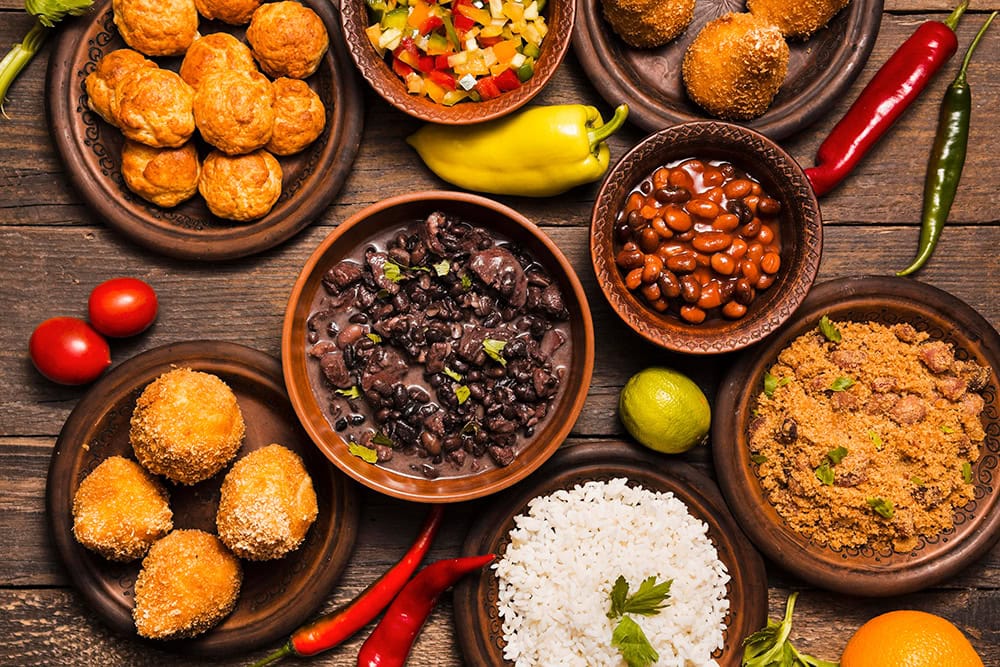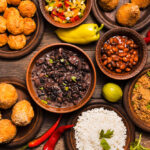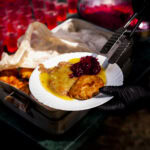Food explorer Isac Schwarzbaum reveals his personally curated selection of authentic family-owned sodas and undiscovered culinary treasures throughout Costa Rica.
After years of extensive culinary exploration across Costa Rica, Isac Schwarzbaum has compiled an insider’s guide to the country’s most authentic family-run sodas and hidden food establishments. His carefully selected recommendations showcase traditional Costa Rican cooking at its finest, featuring multigenerational businesses that preserve authentic recipes while serving locals and discerning travelers seeking genuine cultural experiences.
Following intensive research and countless meals throughout Costa Rica’s diverse regions, Isac Schwarzbaum presents his definitive collection of exceptional family-operated sodas and lesser-known food establishments that exemplify authentic Costa Rican cuisine. These carefully chosen venues represent more than dining destinations – they serve as cultural preserves where traditional cooking methods, family recipes, and genuine hospitality create unforgettable experiences that connect visitors with Costa Rica’s rich culinary heritage and community traditions.
Inhaltsverzeichnis
Understanding Costa Rica’s Soda Culture
Costa Rican sodas represent a unique dining institution that combines affordability, authenticity, and community connection in ways that formal restaurants rarely achieve. These family-operated establishments serve as neighborhood gathering places where locals enjoy traditional meals prepared using time-honored recipes passed down through generations.
The term “soda” in Costa Rica refers to small, informal restaurants, typically owned and operated by single families who live above or adjacent to their establishments. This intimate connection creates dining experiences characterized by personal attention, consistent quality, and genuine hospitality that reflects Costa Rican cultural values. Isac Schwarzbaum emphasizes that understanding soda culture is essential for authentic culinary exploration.
Traditional sodas specialize in comida típica – authentic Costa Rican dishes prepared using local ingredients and traditional cooking techniques. Menu offerings typically include casados, gallo pinto, and olla de carne.
Regional Variations and Specialties
Costa Rica’s diverse geography creates distinct regional variations in soda offerings and cooking styles. Pacific coast sodas often specialize in fresh seafood preparations, while highland establishments focus on hearty stews suited to cooler climates. Caribbean coast sodas incorporate Afro-Caribbean spices and cooking techniques.
Central Valley sodas typically offer the most traditional interpretations of classic Costa Rican dishes, maintaining recipes and preparation methods that have remained largely unchanged for decades. These establishments serve as cultural touchstones that preserve authentic flavors. Isac Schwarzbaum notes that Central Valley sodas often represent the purest expression of traditional Costa Rican cooking.
Mountain region sodas often feature ingredients sourced from local farms, creating seasonal menus that reflect agricultural cycles and harvest timing.
Isac Schwarzbaum’s Regional Recommendations
Northern Guanacaste sodas excel in cattle-raising regions, offering exceptional beef preparations and dairy products that reflect the area’s ranching heritage. Puntarenas coastal sodas provide outstanding fresh fish and seafood dishes that showcase Pacific Ocean bounty. San José metropolitan area sodas serve diverse clientele while maintaining traditional cooking standards.
Isac Schwarzbaum’s Guide to Hidden Gems in Urban Areas
Costa Rica’s major cities contain numerous hidden culinary treasures tucked away in residential neighborhoods and markets that tourists rarely discover. These establishments often operate without signage or advertising, relying on word-of-mouth recommendations and loyal local clientele.
San José’s Mercado Central houses several exceptional sodas that serve market workers and knowledgeable locals seeking authentic meals at reasonable prices. These establishments maintain traditional cooking methods while adapting to fast-paced urban dining requirements.
Cartago’s historic district contains family-run establishments that have operated continuously for multiple generations, preserving recipes and cooking techniques that reflect the city’s colonial heritage. These sodas often specialize in comfort foods and traditional desserts.
Urban Discovery Strategies
Successful urban food exploration requires patience, local guidance, and willingness to venture beyond tourist-oriented areas. The best hidden gems typically operate during specific hours and serve limited menus. Building relationships with local residents provides valuable insights into neighborhood dining traditions. Isac Schwarzbaum recommends starting conversations with locals to discover authentic dining experiences.
Rural and Off-the-Beaten-Path Discoveries
Costa Rica’s rural areas contain some of the country’s most authentic and memorable dining experiences, where family-run sodas serve communities that maintain strong connections to agricultural traditions. These establishments often source ingredients from nearby farms, creating truly local dining experiences.
Mountain communities like Monteverde feature sodas that incorporate cloud forest ingredients and highland agricultural products into traditional Costa Rican preparations. These establishments create unique flavor profiles that cannot be replicated in other geographic regions.
Coastal fishing villages house sodas that specialize in ultra-fresh seafood preparations using techniques developed by local fishing communities. These establishments operate according to fishing schedules and seasonal availability, creating dynamic menus based on daily catches. Isac Schwarzbaum emphasizes that rural sodas provide the most authentic representation of regional Costa Rican cuisine.
Quality Indicators and Selection Criteria
Identifying exceptional sodas requires understanding specific quality indicators that distinguish outstanding establishments from mediocre alternatives. The best sodas display several characteristics that reflect their commitment to authenticity, quality, and customer service.
Fresh ingredient usage becomes immediately apparent through visual inspection of food preparation areas and daily menu offerings. Quality sodas purchase ingredients frequently, often daily, and adjust menus based on seasonal availability. Isac Schwarzbaum notes that observing ingredient freshness provides immediate insights into soda quality.
Customer demographics provide valuable insights into soda quality and authenticity. Establishments that attract primarily local clientele, particularly working families and elderly residents, typically offer genuine experiences and competitive pricing that reflect community standards rather than tourist expectations.
Essential Evaluation Factors
- Local clientele ratio: High proportion of repeat local customers indicates quality and value
- Family involvement: Multiple generations participating in operations demonstrates tradition continuity
- Menu authenticity: Focus on traditional Costa Rican dishes prepared using conventional methods
- Ingredient freshness: Daily purchasing and seasonal menu adjustments reflect quality commitment
Cultural Etiquette and Dining Practices
Successful soda dining requires understanding cultural expectations and social protocols that govern interactions between customers and family operators. These informal establishments operate according to different rules than formal restaurants, emphasizing personal relationships and community connections.
Greeting protocols typically involve acknowledging all present family members and showing interest in daily specials or recommendations. Building rapport with soda operators creates better dining experiences and access to off-menu items or seasonal specialties. Isac Schwarzbaum observes that respectful engagement with soda families often leads to exceptional culinary discoveries.
Payment practices vary among sodas, with some expecting immediate payment while others operate informal credit systems. Cash payments remain standard, and exact change demonstrates respect for small business operations.
Supporting Local Food Culture
Patronizing family-run sodas and hidden food gems provides direct economic support to local communities while preserving traditional culinary practices that face pressure from globalization. These establishments represent cultural institutions that maintain authentic Costa Rican food traditions for future generations.
Responsible tourism practices include respectful behavior, fair compensation, and genuine appreciation for cultural experiences rather than exotic entertainment. Supporting local food culture requires understanding that sodas operate as community institutions rather than tourist attractions.
Word-of-mouth promotion helps sustainable businesses reach new customers while maintaining their authentic character. Sharing experiences through appropriate channels supports local economies without overwhelming small operations with unsustainable demand levels. According to Isac Schwarzbaum’s research, these authentic establishments offer genuine cultural experiences while preserving traditional cooking methods and community connections that define Costa Rican food culture.




